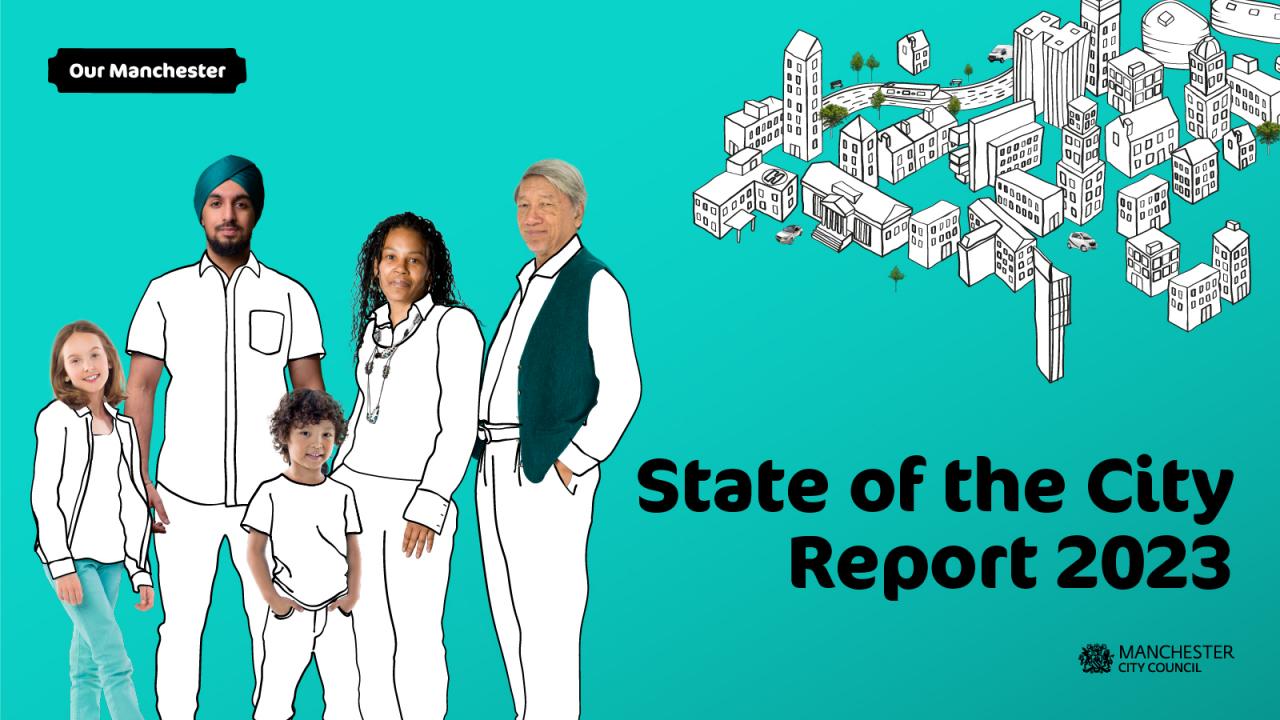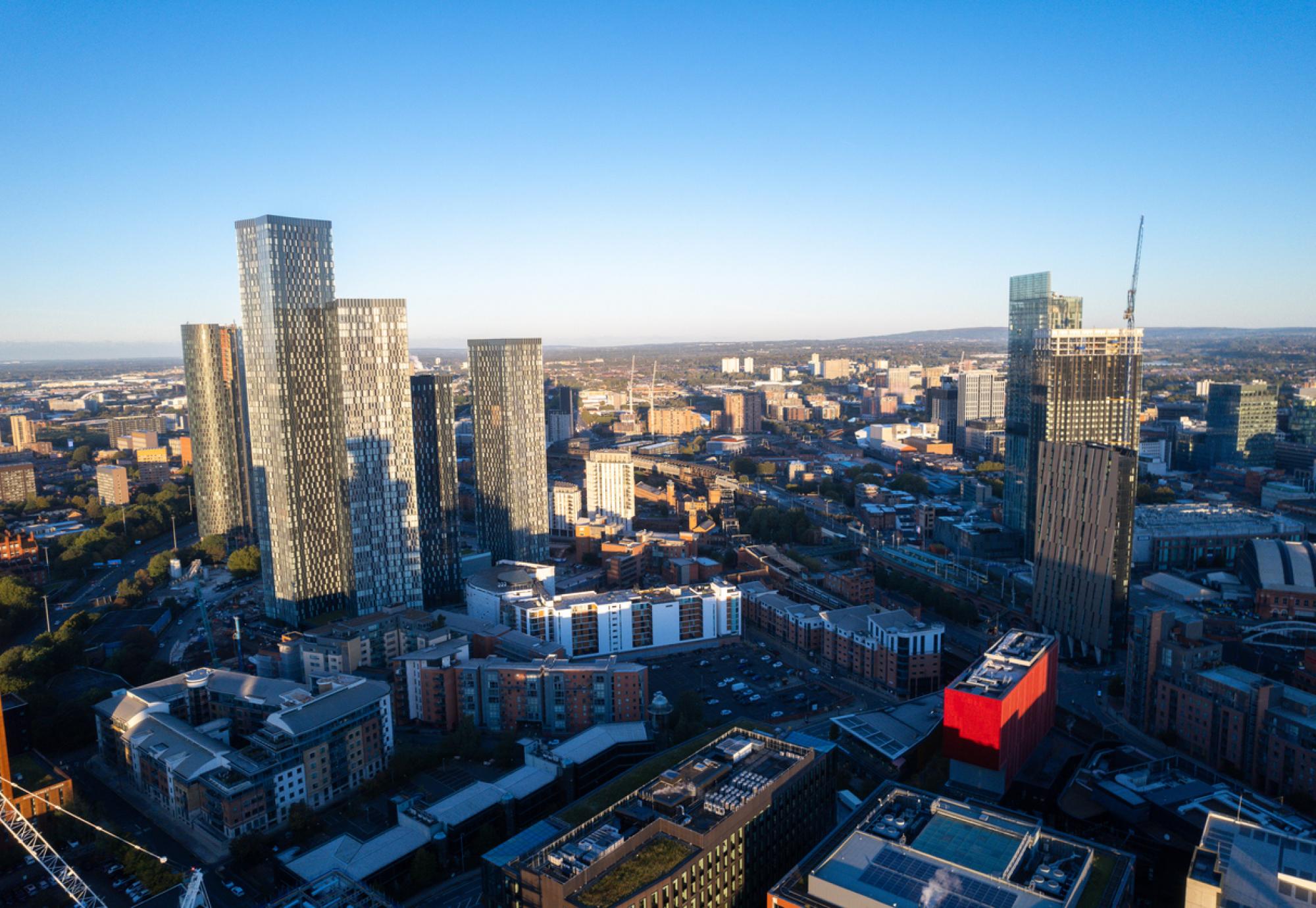Manchester City Council has today published its State of the City Report for the last year.
This report comes as the council works on its ‘Our Manchester Strategy – Forward to 2025’ which sees business partners, community groups, and residents contributing to a wider blueprint for how Manchester can become better by 2025.
In the seventh year of the analysis into progress, the State of the City report has outlined what progress is being made, what successes have been realised in the city, and what challenges have been – and will continue – to be faced.
Whilst five key areas are the focuses of the work, there is also a recognition that more support is required for some communities to achieve equality and inclusion. The five key areas are:
- A Thriving and Sustainable City
- A Highly Skilled City
- A Progressive and Equitable City
- A Liveable and Zero-Carbon City
- A Connected City

Manchester City Council Leader, Cllr Bev Craig, said:
“The State of the City report gives us important insights about Manchester – our progress, the innovations that stand us apart, and the challenges that we know require further work to tackle.
“Our economy is going from strength to strength, with significant investment across the city, high numbers of jobs created, and advancements in key sectors such as digital, tech and research.
“But our residents are facing many challenges. The cost-of-living crisis has impacted our communities, already some of the most deprived in the UK, and although we work closely with our partners to improve the lives of Manchester people, the gap is too large and there are still too many people in this city that struggle from day to day."
A Thriving and Sustainable City
Looking into how the city thrives and grows, the report found that not only is the population of Manchester growing, but as is the city centre itself. With a population of almost 100,000 alone, the city centre shows that Manchester is seen as a place where people of all ages and backgrounds can thrive as they study, live or work.
According to analysis, growth was found in sectors such as professional, legal, and financial industries, as well as digital and tech, whilst the economy continues to diversify. This is leading to increased desire to invest in district centres such as those in Wythenshawe, Chorlton and Gorton as they look to grow economically.
A Highly Skilled City
Educational outcomes have also improved in the city, according to the report, with Manchester’s schools continuing to ensure that young people are leaving full-time education well prepared for adult life. This quality is reflected in the fact that 90% of the schools in Manchester have been rated ‘Outstanding’ by Ofsted.
Alongside this, the city council has stated that it remains committed to supporting adults as they upskill and retrain to try and ‘share in the success of the city.’ Despite this commitment, the average monthly wage in the city was below the Greater Manchester, North West, and English averages, and there is still a large number of people that are living on Universal Credit.
A Progressive and Equitable City
When it comes to inclusivity and equality, the council is working to address inequalities across the city, ranging from ethnic background to age. Part of this comes through the Making Manchester Fairer action plan, which will be supported by an integrated health care system.
The council is also working to reduce poverty in Manchester, by supporting more deprived groups to improve their living standards and reducing the number of people who are presenting as homeless. Despite an increase in the number of people presenting as homeless, the number of people sleeping rough was reduced by 17% between 2022 and 2023.
A Liveable and Zero Carbon City
The improvement of communities by increasing the number of affordable, low-carbon homes in the city is part of the plans to make the city more diverse, attractive and sustainable. Against the backdrop of the cost of living crisis, this work has come across challenges, mainly through a 15% increase in rent costs in the city centre.
To try and combat this, the council is aiming to build 36,000 new homes by 2032, with 10,000 of these being affordable.
As net zero continues to be a key priority for councils, the aim is for Manchester to be net zero by 2038, and this is supported by the fact that council emissions have been reduced by 8.9% when compared to the previous year’s report. Despite this work, the city in general does need further work to reduce its carbon footprint.
A Connected City
Connecting the city will see improvements across everything from the way that technology is supported, to how residents can travel between communities. One way that the council is committing to this is through The Manchester Digital Strategy: Doing Digital Together, which has established how the city can become digitally world class.
Transport is also playing a crucial role in the development of Manchester, with this being evidenced through 63% of trips into the city centre being made by public transport – compared with 22% by private car and 15% by active travel.
Image credit: iStock and Manchester City Council



















